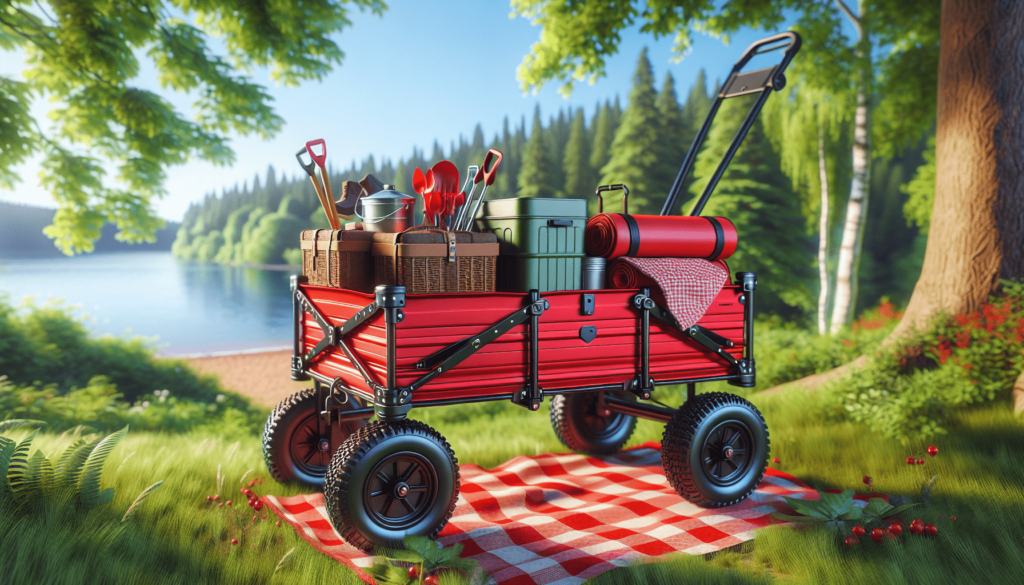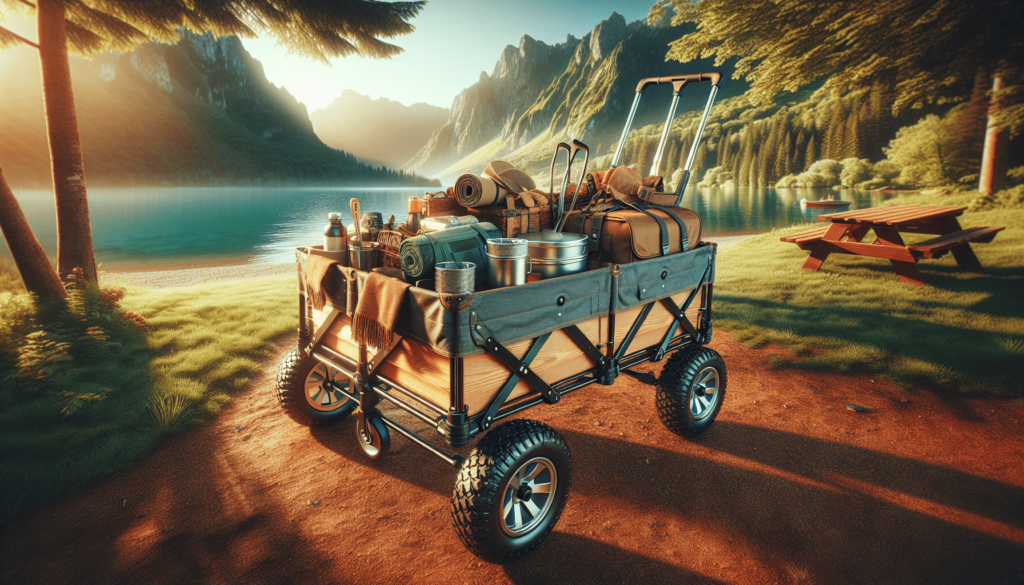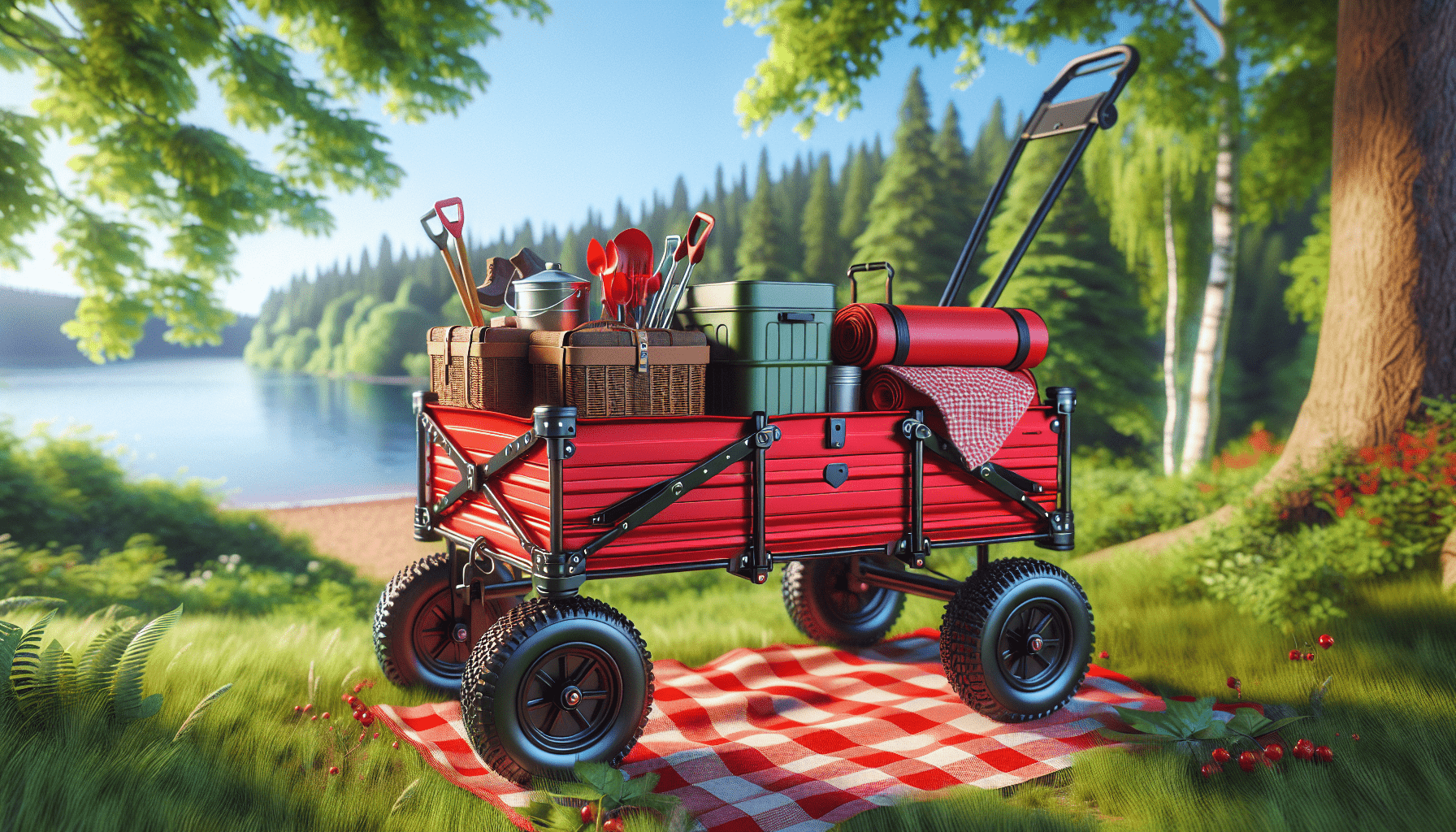Have you ever found yourself wondering just how much weight a heavy-duty collapsible wagon can actually carry? You’re not alone. These versatile wagons are increasingly popular for a variety of uses, from family outings to gardening tasks. Knowing their weight limits can help you make the best choice for your needs.

Understanding Heavy-Duty Collapsible Wagons
Heavy-duty collapsible wagons are designed with functionality and practicality in mind. They combine the flexibility of portability with the strength to handle considerable weight. These wagons are perfect for hauling items such as outdoor gear, groceries, or even gardening supplies.
What Makes a Wagon “Heavy-Duty”?
When a wagon is labeled as “heavy-duty,” it typically means it’s constructed from robust materials that can withstand wear and tear. Look for features such as:
- Sturdy Frames: Many heavy-duty collapsible wagons utilize steel or aluminum frames, which provide strength without adding excessive weight.
- Durable Fabrics: The fabric used for the wagon body is also crucial—it should be tear-resistant and weatherproof, ensuring that even heavier loads won’t cause damage.
- High-Quality Wheels: Strong wheels are essential for maneuverability. Heavy-duty wagons often come with larger wheels that can roll over various terrains while maintaining stability.
Typical Weight Capacity
The capacity of a heavy-duty collapsible wagon can vary significantly depending on its design and materials. Generally, most heavy-duty models can carry anywhere from 150 to 300 pounds. However, some specialized designs may accommodate even more weight.
Factors Influencing Weight Capacity
Several factors influence how much weight a wagon can effectively carry. Understanding these factors will help you choose the right model for your needs.
Construction Materials
The materials used in constructing the wagon frame and body can heavily influence its weight capacity. Steel frames tend to support heavier loads compared to aluminum, though aluminum is lighter and more portable.
Design and Shape
The design of the wagon also plays a role in its capacity. Wagons with wider bases and lower centers of gravity are typically better suited for carrying heavy loads as they provide more stability.
Wheel Size and Type
Larger wheels are often associated with increased weight capacity. The type of wheels (swivel, solid, or inflatable) can also impact how much weight the wagon can carry effectively.
Real-World Applications
Understanding how much weight your heavy-duty collapsible wagon can carry can help you in various real-world scenarios. Here are some common applications:
Family Outings
When heading to the park or beach with the family, having a wagon can make transporting chairs, umbrellas, and snacks a breeze. Knowing your wagon’s weight limit ensures you won’t overload it, potentially causing damage or instability.
Gardening
If you enjoy gardening, a collapsible wagon can help you easily transport tools, soil, and plants throughout your yard. Assessing the weight capacity ensures you can haul all necessary equipment without straining the wagon.
Camping
Camping trips often require transporting bulky gear. A heavy-duty collapsible wagon can serve as your trusty companion. Just be mindful of the weight capacity, especially if you’re carrying heavy items like coolers or firewood.
Grocery Shopping
Using a collapsible wagon for grocery shopping can save time and effort. Knowing how much weight the wagon can carry helps you pack efficiently without overloading on a single trip.

Choosing the Right Wagon
When it comes to choosing the right heavy-duty collapsible wagon for your needs, the weight capacity is just one of many considerations. Here’s a guide to help you make the best decision.
Determine Your Needs
Start by listing the typical items you’ll be hauling. Consider the total weight and volume to narrow down your options. It’s always better to choose a wagon with a higher weight capacity than you think you’ll need, just in case.
Check Weight Limits
Review the specifications provided by the manufacturer. Make sure the weight limit aligns with your needs. Pay attention to any notes regarding load distribution—some wagons have limits that vary based on how weight is distributed across the wagon.
Read Reviews
User reviews often provide real-world insight into how well a wagon performs under various conditions. Look for comments regarding weight capacity and durability to gain a broader understanding of each model’s capabilities.
Inspect the Features
Consider additional features that may be beneficial for your uses, such as:
- Storage Options: Some wagons come with pockets or compartments for organization.
- Ease of Use: Features like adjustable handles and easy folding mechanisms can make a significant difference in usability.
- Weight: A balance between heavy-duty and lightweight can be crucial for portability.
Maintenance Tips for Heavy-Duty Collapsible Wagons
After choosing the right wagon, it’s essential to maintain it properly to ensure longevity. Here are some best practices to follow.
Regular Cleaning
After each use, wipe down the fabric and frame. This helps remove dirt, mud, or debris that can accumulate over time.
Check for Damage
Regularly inspect the wagon for any signs of wear and tear. Look for cracks in the frame or frayed fabric, and address any issues promptly.
Store Properly
When not in use, store your wagon in a dry and cool place. Avoid exposure to direct sunlight for prolonged periods, as UV rays can weaken the fabric and materials over time.
Lubricate Moving Parts
For wagons with wheels or folding mechanisms, applying a bit of lubricant can keep them functioning smoothly. Just be cautious not to over-apply, as this can attract dirt.
Common Misconceptions
With so many options available, common misconceptions about heavy-duty collapsible wagons can lead to confusion. Here are a few to clarify.
“All Wagon Capacities Are the Same”
It’s a common assumption that collapsible wagons have similar load capacities. In reality, capacities can vary widely, so always check specifications.
“Heavy-Duty Means Heavier”
While “heavy-duty” implies strength, that doesn’t mean the wagon itself is cumbersome. Many models are designed for ease of transport and convenience.
“Collapsible Means Fragile”
Just because a wagon collapses doesn’t mean it’s weak. Heavy-duty collapsible wagons are specifically engineered to support significant weight while maintaining portability.
Potential Downsides
While heavy-duty collapsible wagons offer many benefits, it’s essential to consider a few potential downsides.
Limited Weight Capacity for Very Heavy Items
Although many wagons can carry a lot of weight, there are limits. Overloading a wagon can lead to structural damage or accidents. Always respect the manufacturer’s guidelines.
Size Limitations
When folded, some models can take up quite a bit of space, which could be a consideration if you’re tight on storage. Check the dimensions both when folded and fully extended.
Maneuverability with Heavy Loads
While heavy-duty wagons can support more weight, maneuverability can become an issue when loaded to their limits, especially on uneven terrain.
Alternatives to Heavy-Duty Collapsible Wagons
If you’re still uncertain about a collapsible wagon, here are a few alternatives that might serve your needs better:
Hand Trucks
Hand trucks are excellent for moving heavy items such as appliances or boxes. They often have a higher weight capacity but can be less versatile than collapsible wagons for everyday use.
Utility Carts
Utility carts are sturdy and typically have larger platforms for hauling multiple items. While they can be bulkier, they often support significant weight.
Beach Carts
Specifically designed for beach outings, these carts typically feature larger wheels for navigating through sand. However, their capacities can vary, so always double-check.
Conclusion: Finding the Right Balance
With all this information, you’re well-equipped to determine how much weight a heavy-duty collapsible wagon can carry and find the right one for your needs. Whether you’re preparing for a family outing, tackling a gardening project, or just running errands, knowing the limitations and capabilities of your wagon is key to making the most out of it.
In choosing your wagon, consider carefully how much weight you’ll typically need to transport, the materials and construction of your wagon, and the real-world scenarios in which you’ll be using it. Balance functionality, weight capacity, and ease of use for a decision that pays off in versatility and satisfaction for years to come.
Enjoy your adventures with your collapsible wagon, knowing you made a smart choice that suits your lifestyle!

